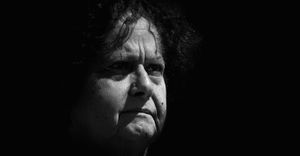In the early stages of our journey, "Forgiveness" might be seem like another "F" word. It's not something we want to hear or think about. That's normal, and nothing to stress about. Putting pressure on ourselves to forgive (or giving in to someone else's pressure) simply increases our burden and pain at a time when "surviving this" is our main priority. Later in our healing though, most of us realize (often prompted by the Holy Spirit) it's time to consider forgiveness.
I'm so grateful that one of the sisters whose forgiveness journey I admire most has taken the time to share what she has learned along the way. This week, Marcella Burns continues her series on forgiveness by discussing the four phases of working through forgiveness. Please refer to her post last week for more information on preparing for this forgiveness work.
The Uncovering Phase###
In preparation to begin the work of the first two phases, put on pleasant music, and choose a time when you will be free of interruptions.
In the Uncovering Phase, we examine the nature of the offense and how the resulting damage affected our lives. What boundaries were crossed? What promises were broken? This should be as objectively stated as possible and the injury should not be minimized or discounted. Note all instances of harm caused by the offense; including guilt, shame, preoccupation with the offender and/or the offense, any life changes due to the offense (temporary or permanent), and any consequent changes in one’s perspective about the justice/safety of the world and of God.
The Decision Phase
In the decision phase, the offended person makes the decision that they will forgive the offense or that they are willing to be willing to forgive the offense. This is not something that can be forced on them by some religious or cultural standard, but something they decide for themselves they are willing to do. There is usually an understanding of the pain caused by the unforgiveness on one side, and well as the freedom received by forgiveness on the other side that helps the offended one want to cross over.
The Work Phase
In this phase, the offended one begins actively working to forgive the offense. It is very helpful to involve a coach or counselor familiar with the process at this stage. According to Enright and Fitzgibbons, the offended person “gains a cognitive understanding of the offender and begins to view the offender in a new light, resulting in positive change, in effect, about the offender, about the self, and about the relationship.” Some of the things we can do to bring about this change are to “reframe the offense” understanding the offender’s addiction or brokenness, and developing empathy or compassion for the offender.
As a Christian, the offended can also choose to bear their suffering as they fellowship with Jesus in his suffering. In the book of Hebrews 5:10, we read, "Though He were a Son, yet He learned obedience by the things which He suffered, And being made perfect [complete], He became the author of eternal salvation unto all them that obey Him". Philippians 3:10 tells us “That I may know Him, and the power of His resurrection, and the fellowship of His sufferings, being made conformable unto His death.” During this phase, the offended chooses to give the offended a gift, the gift of undeserved forgiveness and/or another gift they feel prompted to give. According to Enright & Fitzgibbons, “Psychologically, such beneficence cannot be rushed or demanded, and may take a long time to achieve”. The offended should be well supported during this process.
The Deepening Phase
In the final phase of this process, according to Enright and Fitzgibbons, the offended “finds increasing meaning in the suffering, feels more connected with others, and experiences decreased negative effects and, at times, renewed purpose in life.” They often realize their own need for forgiveness, and many realize that some of those they have harbored ill will toward were not the true perpetrator of their injuries. Many find that as they are released from the “prison of unforgiveness” they find new meaning in their suffering and are able to see it as part of a bigger plan, one that gives meaning to their pain.
Next week, we will look at the results of forgiving.
Marcella Burns is a recent graduate of Liberty University, with a MA in Human Services Counseling/Life Coaching. She is the mother of nine children and grandmother to four. She was married to a sex addict and intimacy anorexic for 34 years. She is working toward certification as a Life Coach, intending to work with partners of sex addicts. She used to be the “Queen of Bitterness” but has resigned from that position and is working toward walking in love and forgiveness toward all.


